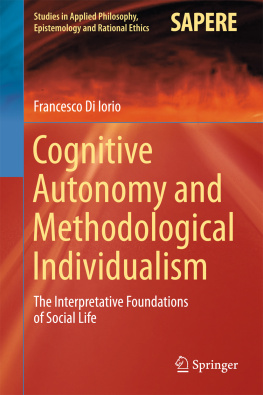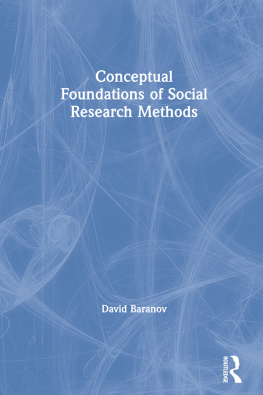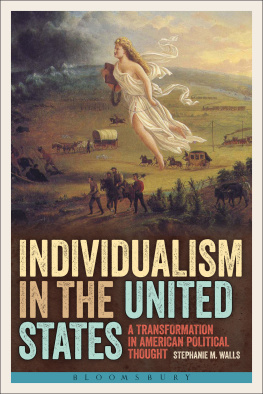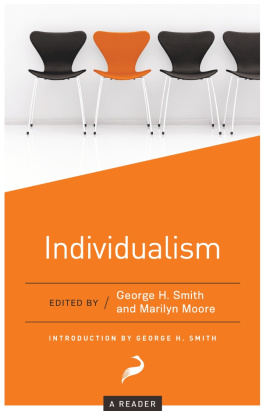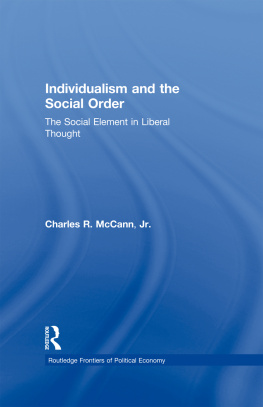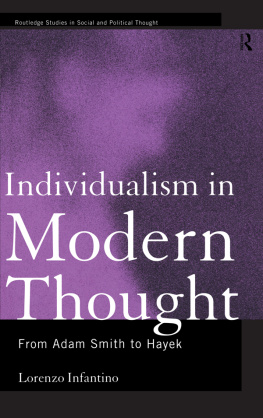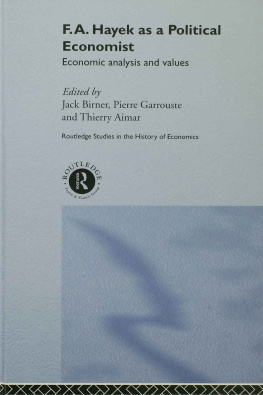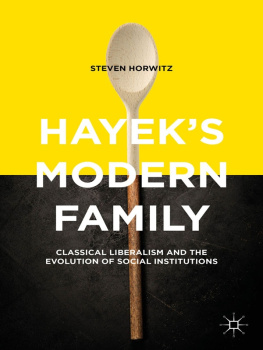Di Iorio - Cognitive autonomy and methodological individualism : the interpretative foundations of social life
Here you can read online Di Iorio - Cognitive autonomy and methodological individualism : the interpretative foundations of social life full text of the book (entire story) in english for free. Download pdf and epub, get meaning, cover and reviews about this ebook. year: 2015, publisher: Springer International Publishing, Cham, genre: Romance novel. Description of the work, (preface) as well as reviews are available. Best literature library LitArk.com created for fans of good reading and offers a wide selection of genres:
Romance novel
Science fiction
Adventure
Detective
Science
History
Home and family
Prose
Art
Politics
Computer
Non-fiction
Religion
Business
Children
Humor
Choose a favorite category and find really read worthwhile books. Enjoy immersion in the world of imagination, feel the emotions of the characters or learn something new for yourself, make an fascinating discovery.
- Book:Cognitive autonomy and methodological individualism : the interpretative foundations of social life
- Author:
- Publisher:Springer International Publishing, Cham
- Genre:
- Year:2015
- Rating:5 / 5
- Favourites:Add to favourites
- Your mark:
Cognitive autonomy and methodological individualism : the interpretative foundations of social life: summary, description and annotation
We offer to read an annotation, description, summary or preface (depends on what the author of the book "Cognitive autonomy and methodological individualism : the interpretative foundations of social life" wrote himself). If you haven't found the necessary information about the book — write in the comments, we will try to find it.
Di Iorio offers a new approach to Hayeks Sensory Order, linking neuroscience to the old Verstehen tradition and to contemporary theories of self-organizing systems; this should be on the reading list of everyone who is interested in Hayeks thought.
Barry Smith
University at Buffalo, editor of The Monist
This impressive and well-researched book breaks new ground in our understanding of F.A. Hayek and of methodological individualism more generally. It shows that methodological individualism sanctions neither an atomistic view of society nor a mechanical determinism. The book carefully analyzes an important tradition in the social sciences, and compares it to many important philosophical, sociological and economic systems of thought. This is an enlightening book for all scholars interested in the methodological problems of the social sciences.
Mario J. Rizzo
New York University
One of Hayeks most important contributions is his linking of complex methodological individualism, which deals with the emergence of spontaneous orders and unintended collective structures in complex self-organizing social systems, with a cognitive psychology. What makes Francesco Di Iorios book of great interest is that, by building on Hayeks seminal book The Sensory Order, it deepens the connections between cognition and rules of just conduct, taking into account relevant theories on subjectivity and consciousness such as phenomenology, hermeneutics and enactivism.
Jean Petitot
cole des Hautes tudes en Sciences Sociales, EHESS, Paris
In this thoughtful and enlightening book Francesco Di Iorio uses Hayeks cognitive psychology as the starting point for investigation of the relationship between the autonomy of the agent and socio-cultural influences within methodological individualism. The book provides an illuminating and innovative analysis of a central issue in the philosophy of social science by setting Hayeks view on mind and action in fruitful relation to approaches such as Gadamers hermeneutics, Merleau-Pontys phenomenology, Varelas and Maturanas enaction, Boudons interpretative sociology, Poppers fallibilism and Mises praxeology. One of the most interesting aspects of this book is its argument that hermeneutics and fallibilism refer not to two different methods but to the same one.
Dario Antiseri
Emeritus Professor at LUISS University, Rome
Francesco Di Iorios book explores, in an original way, the connections between Hayeks methodological individualism and his fascinating idea that human mind is both an interpretative device and a self-organizing system. It is a brilliant, clearly written work, characterized by a certain intellectual courage, which makes a remarkable contribution to the sociology of knowledge.
Grald Bronner
Paris Diderot University
Di Iorio: author's other books
Who wrote Cognitive autonomy and methodological individualism : the interpretative foundations of social life? Find out the surname, the name of the author of the book and a list of all author's works by series.

